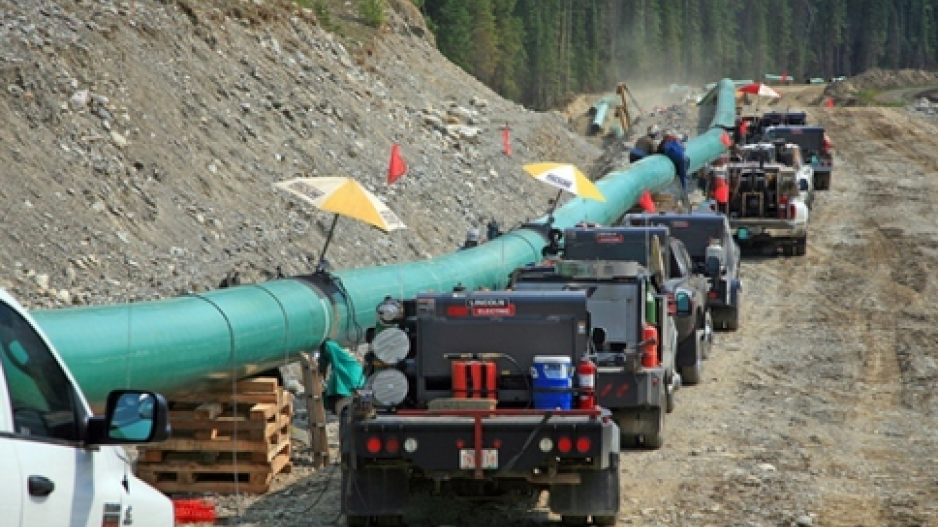The National Energy Board’s report on Kinder Morgan’s proposal to twin the Trans Mountain pipeline is “500 pages of fluff,” according to Burnaby’s lawyer.
Greg McDade’s comment comes after he and a handful of other lawyers, all of whom represented intervenors in the NEB process, reviewed the document to examine whether the report met basic legal standards.
Their conclusion? It did not.
“From Burnaby’s perspective, there were all sorts of issues that we put forward as evidence around fire risk, safety risk and oil spill risk,” McDade told the Burnaby Now. “What we found in the report is that they didn’t deal with those issues at all. They talked about them, but they didn’t get into the science questions. They didn’t give what you’d expect a report to do, which is an analysis of the evidence. Instead, they simply deferred those questions to later plans.”
On May 19, the NEB recommended the federal government approve the company’s plan to twin the Trans Mountain pipeline as long as 157 conditions were met. The decision came after more than two years of hearings and a host of participants weighing in.
The national regulator OK’d the project because it’s believes it will increase access for Canadian oil, create hundreds of long term jobs, develop Indigenous communities and generate considerable government revenue.
But it’s the Liberal cabinet that will give the final green light. A decision is expected by the end of this year.
Of the 157 conditions set out by the NEB, McDade argued practically all of them were identical to the 145 draft conditions the NEB released last August, before any evidence was received from the intervenors and prior to the hearings.
“Which means all the intervenor evidence that was put in, and all of the oral and written arguments they called to hearing was absolutely pointless. Except for some minor points, they completely ignored it all,” the city lawyer added. “They could have written this report before they started.”
Over and over, the board said it was “satisfied” with Trans Mountain’s evidence or found its positions “acceptable,” according to the group of lawyers. McDade said if the hearing was fair, some issues would go one way, some would go the other.
“The regulator would have a tough choice (to make). What we found here is that the regulator ducked all the tough issues and simply accepted Trans Mountain’s approach to things was going to be fine,” he said, adding the NEB made its determination of public interest solely on the economic benefits of the project.
Many of the recommendations instruct Trans Mountain to file plans after the project is approved by the cabinet, which has allowed the NEB to sidestep the contentious environmental issues, the lawyers argued.
The law cohort also claimed the NEB accepted Trans Mountain’s evidence over evidence submitted by the intervenors in 84 of the 103 issues (82%), without oral cross-examination and often without analysis. (Rather than oral examination, the NEB allowed intervenors to submit information requests, which gave Kinder Morgan an opportunity to respond in writing.)
Sarah Kiley, communications officer with the NEB, told the Burnaby Nowthe regulator stands by its report.
“We understand some people may be disappointed or not agree with the decision, but I think it’s unfair to say that it was anything other than a very thorough review. It was very rigorous, it was based in science and incorporated multiple reviews and opinions,” she said.
“We recognize that should something go wrong that the consequences could be very high, we absolutely did hear that. We also know the likelihood of that happening is very low.
“When the National Energy Board makes a recommendation on a project, what they have to do is balance both the pros and the cons, the benefits and the burdens and make a decision. And that’s what they did in this case.”
Kiley said if at any time the NEB is not satisfied with the way the project is being carried out in a manner that is not safe for people and the environment, the regulator can take action by issuing fines, suspending operations and shutting it down all together.
Burnaby Now



